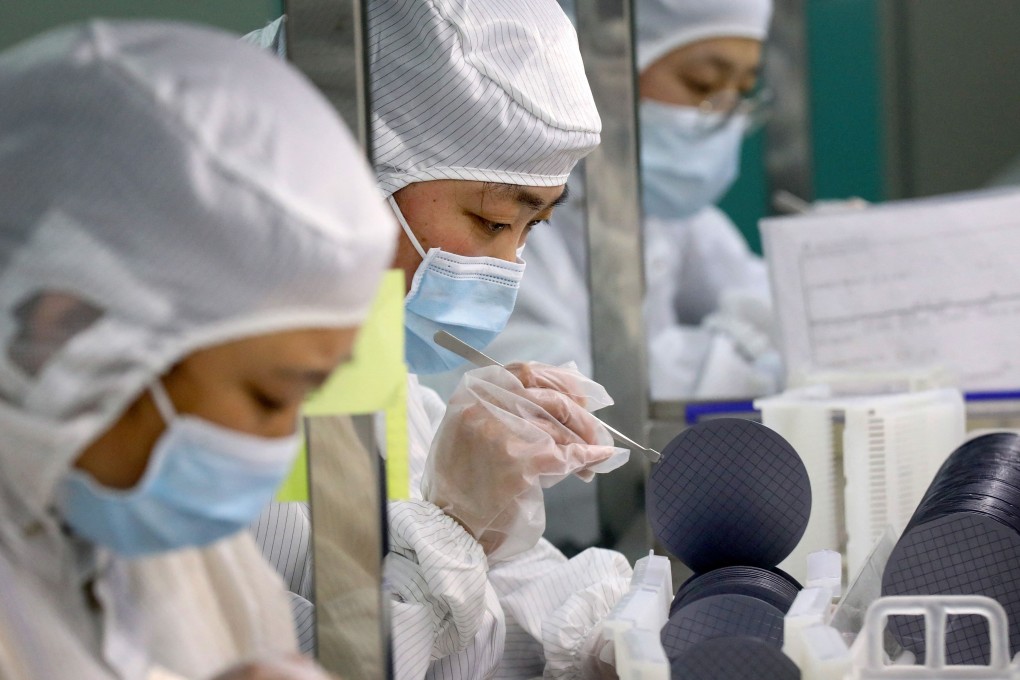Hiring among internet giants falls amid China’s tech crackdown, but remains robust in semiconductors
- New jobs for fresh graduates at Big Tech companies have declined amid Beijing’s industry crackdown, and wages remain stagnant, recruitment data show
- The strategically important semiconductor industry has continued to grow rapidly, but only 1 per cent of new hires were highly skilled technicians

Job growth is shrinking at Chinese Big Tech companies as wages remain stagnant amid Beijing’s harsh crackdown on the sector, but the strategically important semiconductor industry has been bucking the trend.
Job opportunities at internet companies for fresh graduates, who will start work next summer, were 15 per cent lower than last year as of mid-October, according to data from 51job.com. Companies begin recruiting upcoming graduates in the fall, but it continues through the spring semester.
In contrast, the number of jobs available in the consumer and automotive industries increased by more than 10 per cent, according to 51job.com.
However, only 1.1 per cent of new recruits were semiconductor technicians, a relatively highly skilled job. The position with the most hires for the quarter was manufacturing operator, at 6.4 per cent. Sales engineers and quality control engineers were also in high demand, making up 5.9 per cent and 3.4 per cent of new hires, respectively.